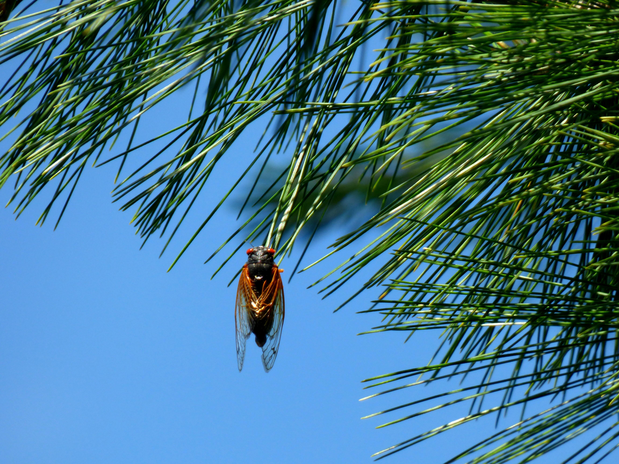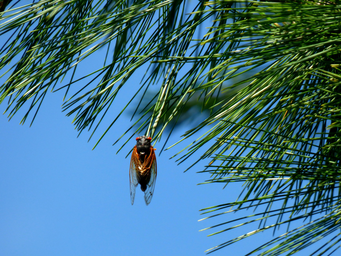As summer approaches, we tend to imagine ourselves free of school and instead, vacationing somewhere warm and preferably, somewhere by a body of water. However, the beginning of this summer will look a little different as approximately one billion cicadas will swarm the DMV region within the coming weeks. This cicada surge is also known as Brood X, or the Great Eastern Brood. Brood X, “X” as in the Roman numeral ten, are a part of the cicada group that emerges every 17 years. According to CNN, this will be the largest emergence since 2004, and to put that into perspective, 2004 was the year that the last season of “Friends” aired. So, where, when, and why do cicadas maintain such a schedule? And what does this mean for our spring and summer planting?
Related Article: 5 Beauties of Nature We Tend to Overlook
Entomologists expect these cicadas to stretch across the eastern part of the country, possibly from Tennessee all the way to New York. They will most likely frequent metropolitan areas including Washington D.C., Baltimore, Cincinnati and Philadelphia. The cicadas will begin to emerge when the soil reaches approximately 64 degrees Fahrenheit, which means that the peak-time will most likely occur during the beginning weeks of May. During this time, entomologist Eric Day of Virginia Polytechnic Institute and State University explains that cicada’s top priority during this time is to find a mate. As a result, male cicadas will emit a loud, buzzing noise as a mating song. Gene Kritsky, the dean of behavioral and natural sciences at Mount St. Joseph University in Cincinnati, once recorded a cicada chorus near the flight path for Cincinnati/Northern Kentucky International Airport and found that the sounds produced reached a whopping 96 decibels, loud enough to overcome the sound of the passenger jets directly overhead.
When concerning your garden, cicadas can harm younger trees as female cicadas lay their eggs on new growth and thus, damage the tips of the trees, which is called flagging. However, older trees are not a concern as they can recover from flagging. As a result, it may be best to delay the planting of trees with a trunk diameter of less than two inches; and, if you have already planted a younger tree, try wrapping the branches in cheesecloth. Pesticides should NOT be used against cicadas as they offer many ecological benefits, including acting as a natural aeration of the soil; a natural pruning of trees, which in turn contributes to the blooming of more flowers and fruit the following year; they are a source of food for predators; and, when they die after four to six weeks, they provide nitrogen and other important nutrients back into the soil.
Related Article: 6 Simple Ways Spending Time Outdoors Can Boost Your Mood
What is also fascinating about this emergence is that entomologists are hoping to incorporate the public in documenting Brood X. An app developed by Gene Kritsky titled Cicada Safari will allow for witnesses to take a picture of the cicadas along with the time, date, and geographical coordinates. As a result, even you can be an important part of recording the 2021 emergence of Brood X!



